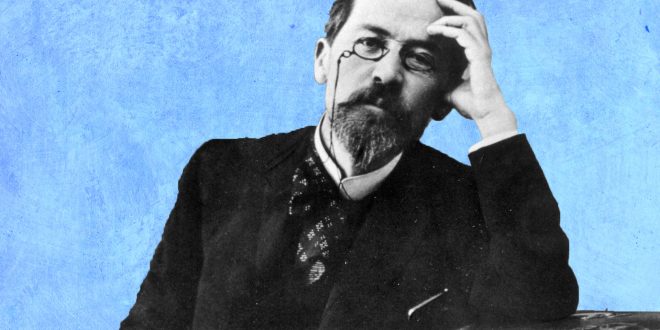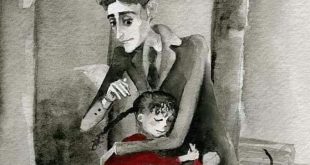What exactly does the term “cultured” mean? Is it about being a proficient reader, having the ability to discuss works you haven’t read, or simply possessing a refined intellectual attitude?
In a letter to his older brother Nikolai, who was an artist, beloved Russian novelist Anton Chekhov (January 29, 1860–July 15, 1904), who was regarded as one of Russia’s greatest writers, specifically considers this question.
This letter talks about the 8 qualities that true cultured people have. In this article, we will cite all of them.
1. Kindness
For Chekhov, truly cultured people “Respect the individual and are therefore always indulgent, gentle, polite and compliant. […] When they move in with somebody, they do not act as if they were doing him a favor, and when they move out, they do not say, ‘How can anyone live with you!’” They forgive the noise, as well as the occurrences and the presence of strangers in their homes.
A cultured person appreciates others for who they are as individuals, is tolerant, and accepts responsibility for his own actions rather than blaming others for his mistakes. They are adaptable enough to accept behaviors and ways of thinking that differ from their own.
2. Empathy
Chehkov said: “Their compassion extends beyond beggars and cats. They are hurt even by things the naked eye can’t see”.

A cultured person is also sensitive and empathetic, not only in the face of injustices and pain that come his way, but also in the face of everything that happens in the world. The Latin word “cultūra,” which means “care” is where the term “culture” originates. A human with culture does not ignore the suffering of his fellow humans.
3. Economy
When it comes to material goods, Chekhov says, “They respect the property of others, and thus pay their debts.”
4. Rejecting deception and lies
Chekhov asserts that highly cultured individuals have the following traits when it comes to lying and slander: “They are sincere, and dread lying like fire. They don’t lie even in small things. A lie is insulting to the listener and puts him in a lower position in the eyes of the speaker. They do not put on airs: they behave in the street as they do at home, they do not show off before their humbler comrades. They are not given to babbling and forcing their uninvited confidences on others. Out of respect for other people’s ears they more often keep silent than talk”.
5. Refusing to be victimized
Regarding this, he states: “They do not belittle themselves to rouse sympathy. They do not play on the strings of other people’s hearts so that they may sigh and make much of them.”
According to Anton Chekhov, someone who is cultured also has dignity and does not lament or grieve over spilt milk. The cultured person does not try to manipulate others by exploiting their misfortunes, and instead seeks solutions to problems.
6. Discarding pride and vainness
Regarding this, he suggests: “They have no shallow vanity. […] If they do a pennyworth they do not strut about as though they had done a hundred roubles’ worth, and do not brag of having access where others are not admitted”.

People who are empty on the inside, make a lot of outside noise. Instead, those who are cultured do not need to be recognized by others or to flaunt their intelligence in front of others. Humility and culture always go hand in hand.
7. Appreciation for individual talent
Every person on the planet has a unique talent. Knowing your own strengths and being committed to their development are both elements of cultur.. Chekhov asserts that cultured individuals: “If they have a talent they respect it. They sacrifice to it rest, women, wine, vanity […] They are proud of their talent”.
This means, work hard to become better person than you were in the past. Grow. Even if it is neccessary to do a great deal of work and making some compromises in life. We must always keep in mind that brilliance alone will not produce much results without hard work.
8. Moderation and caution in behavior
Chekhov suggests that sophisticated, cultured, civilized individuals: “They cultivate their aesthetic sensibilities. They cannot stand to fall asleep fully dressed, see a slit in the wall teeming with bedbugs, breathe rotten air, walk on a spittle-laden floor or eat off a kerosene stove. They seek as far as possible to restrain and ennoble the sexual instinct. […] They want, especially if they are artists, freshness, elegance, humanity, the capacity for motherhood. […] They do not drink vodka at all hours of the day and night, do not sniff at cupboards, for they are not pigs and know they are not.”
Sources:
 MENTPSYCH Meet Your Self
MENTPSYCH Meet Your Self




